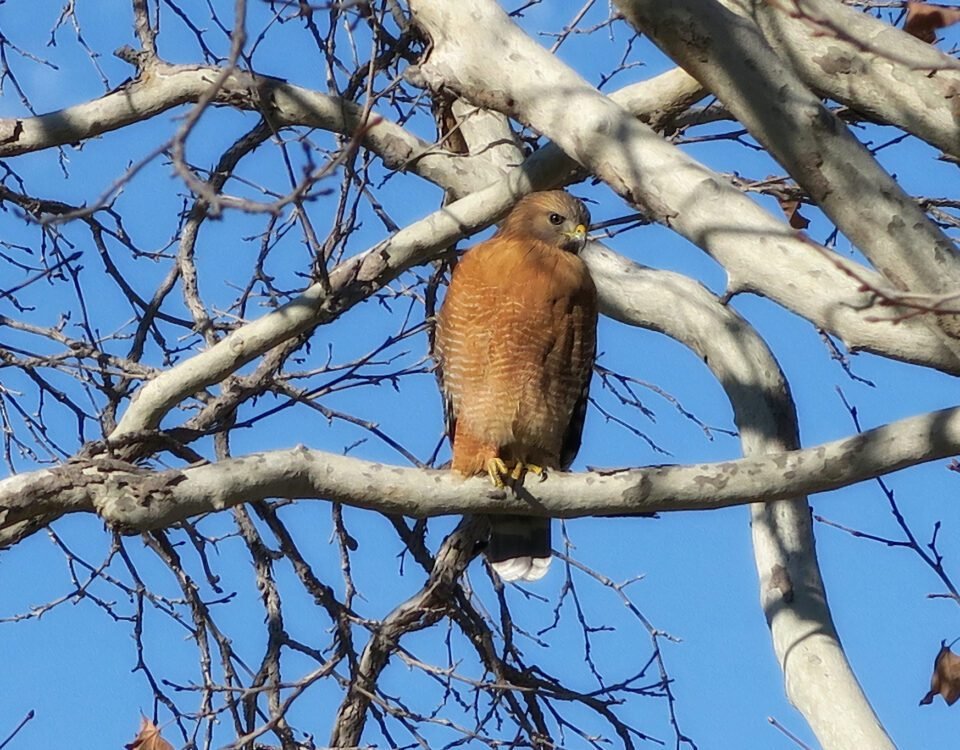


Can Birds Eat Watermelon? Is Watermelon Safe for Birds?
October 9, 2023


Why Do Hummingbirds Have Long Beaks? The Truth Discovered
October 10, 2023If you have birds, you might have observed their delightful reactions to music. Their behaviors, like bobbing their heads or flapping their wings, suggest they share some of our emotional responses to melodies. But does this really mean that birds genuinely like music?
Yes, many birds do appear to enjoy music. Observations show that certain birds respond positively to melodies by dancing, mimicking sounds, or flapping their wings. The type of music and its tempo can influence their reactions, with some tunes prompting more active responses than others. However, individual preferences can vary; what one bird enjoys, another might not.
In this article, we will discuss how birds respond to music and other safety concerns related to music and birds!
Related Read: Why Won’t My Bird Stop Screaming? Identifying Reasons
Do Birds Like Music?
Like humans and songbirds, birds possess a gene activated upon hearing pleasing sounds. Given the generally cheerful nature of birds, it’s reasonable to conclude that they appreciate music.
Many birds not only enjoy listening but also engage in singing and dancing, often moving to the rhythm. However, it’s essential to discern the specific music types they prefer.
While music can either soothe or invigorate birds, it’s also worth noting that specific tunes or high volumes can induce stress in them.
What Is Music For Birds, And Why Do They Respond To It?
Music for birds is similar to what it is for humans: a series of sounds, rhythms, and melodies. Birds have highly developed auditory systems, which allow them to interpret and respond to these sounds. They often react to music because of its rhythmic and melodic properties.
Many birds use song and sound to communicate, mate attraction, and territory establishment. Therefore, when they hear external music, it might resonate with their natural tendencies to respond to auditory stimuli.
Different birds might have varying reactions, with some showing visible enthusiasm, like head bobbing, while others might sing along or mimic the tunes.
Recommended Read: Why Birds Hit Windows? Is It Considered Spiritual?
Birds’ Biological Response To Music


Birds Music
Birds have a notable biological response to auditory stimuli, including music. Their reactions may arise from the resemblance of musical melodies to natural bird songs. Research indicates that certain melodies can influence bird behavior and vocal patterns, with some aiding in the vocal development of young birds by mimicking adult bird sounds.
Different music genres can evoke varied responses. Calming classical tunes tend to soothe birds, while lively beats might prompt movements akin to dancing in some species. These reactions likely have roots in evolutionary adaptations spanning millions of years.
While the exact reason birds are drawn to music remains unclear, it’s speculated that their natural affinity for sounds, especially during mating displays, plays a role. Nonetheless, music can engage and affect our avian counterparts.
What Kind Of Music Do Birds Like?
Typically, birds appreciate music with catchy tunes and rhythmic beats similar to contemporary pop and rock tracks. However, individual preferences can vary. Some might dislike specific music genres, evident through recognizable negative behaviors.
While some birds might lean towards lively tunes, others might be inclined towards serene, classical melodies. This preference diversity highlights that birds, much like humans, have distinct personalities and tastes.
The Gray Parrot Study
A research study involving two African Gray Parrots revealed distinct musical preferences. While both birds liked rock music, they seemed indifferent to electronic tunes. Surprisingly, electronic music seemed to unsettle them, causing them to vocalize loudly in distress.


They were generally receptive to pop music and notably enjoyed tracks from Joan Baez, UB40, and U2, as well as some classical compositions by Johann Sebastian Bach.
Also, Read: How Much Is A Peacock Worth? A-Z Guide
Do Birds Dance To Music?
Research indicates that birds are unique animals with the capability to move in rhythm with music. Some suggest birds genuinely experience the music, akin to humans, while others believe they might be sensing air vibrations.
However, when a bird bobs its head to a tune, it’s a sign of enjoyment and engagement with the music. Evidence of birds having distinct musical preferences suggests they perceive and resonate with music beyond mere vibrations.
Another perspective is that birds are merely imitating their owners. While mimicry is a known trait in many birds, owners have observed that their birds often dance only to preferred songs.
If they were solely mimicking, they’d dance regardless of any music. They would stop their movements once the owner is absent. Thus, it’s evident that birds genuinely enjoy dancing to music.
Editor’s Pick: Why Are Birds So Cute? 10 Reasons Why Birds Are Cutest
Music And Bird Safety
As a pet owner, your bird’s well-being is paramount. While many birds enjoy music, it’s essential to consider their preferences.
- Avoid playing loud music, as consistently high volumes can harm their auditory senses.
- Opt for serene and gentle music over loud or harsh tunes.
- Use music to mask potentially distressing noises, like fireworks.
- If playing nature sounds, ensure there are no predator calls included.
- Stick to tracks that your bird has shown an affinity for.
- When introducing new songs or leaving music on, be present to change or turn off tracks your bird might not like.
- While dancing or singing along with your bird can be delightful, ensure they get rest, especially if they seem tired.
Conclusion
Birds, much like humans, have a good relationship with music and can even show preferences for specific genres. Typically, birds favor classical and pop tunes, while electronic dance music might unsettle them due to its rapid beats.
They can sense the music’s rhythm and move accordingly. To determine your bird’s favorite tracks, play a variety and observe its reactions.
Positive indicators include whistling and head-bobbing, while loud vocalizations suggest you might want to switch songs. It’s good to provide birds with background music occasionally, but always be mindful of the volume and keenly observe their responses.



